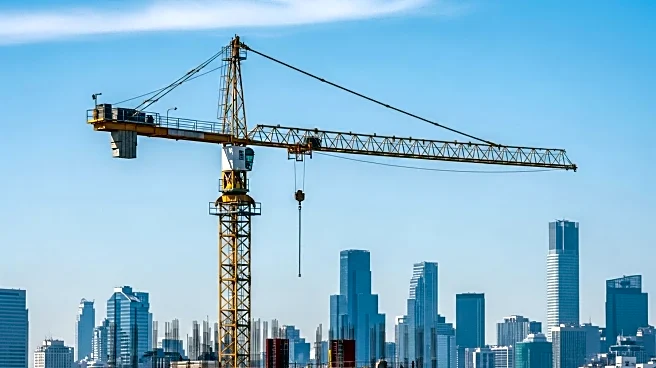What's Happening?
Naperville's proposed 2026 budget includes $190 million for capital improvement and infrastructure projects, marking a 6% increase from the previous year. The budget prioritizes transportation and utility infrastructure, with $31.4 million allocated for upgrades at the Springbrook wastewater treatment facility and $28.4 million for water main replacements. The city plans to replace 6.5 miles of water mains annually, potentially increasing to 10 miles as infrastructure ages. Additionally, $30 million is earmarked for electric utility improvements, focusing on moving overhead lines underground to reduce outages. The budget also includes $38.6 million for road-related projects, a 31% increase from 2025, driven by rising costs and aging infrastructure.
Why It's Important?
The budget reflects Naperville's commitment to addressing its aging infrastructure and improving utility services. By investing in water main replacements and electric utility upgrades, the city aims to enhance service reliability and reduce outages, benefiting residents and businesses. The increased allocation for road projects indicates a focus on improving transportation infrastructure, which is crucial for economic growth and community development. Ending the cost-share sidewalk replacement program could streamline administrative processes and allow the city to reallocate resources to other priorities, potentially improving overall efficiency.
What's Next?
The next budget workshop is scheduled for October 28, focusing on general operation expenses. The city council will approve the 2026 budget and property tax levy in December. As the city moves forward with its infrastructure plans, it will need to balance rising costs with the need for improvements, potentially revisiting funding allocations and project priorities. The decision to end the sidewalk cost-share program may lead to discussions on alternative funding mechanisms for future infrastructure projects.









